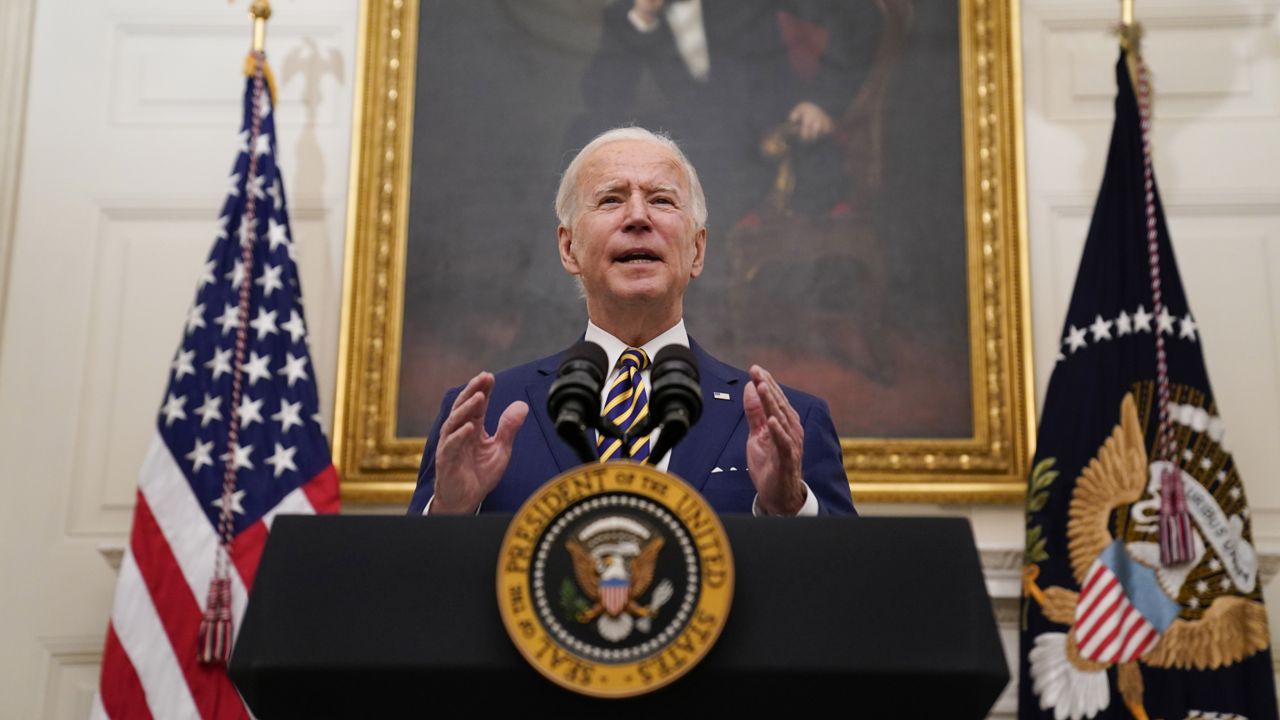President Joe Biden continued his sweep of executive orders on Friday afternoon, signing two orders to address the economic crisis brought about by the ongoing coronavirus pandemic.
Biden’s economic stopgap measures are not intended to be substitutes for the $1.9 trillion stimulus measure the president has put forward, but rather are immediate actions intended to ease the financial strain of Americans as Congress begins to consider his much larger package.
Friday’s orders mark the beginning of an “effort to provide equitable emergency economic relief to working families, communities, and small businesses across the nation,” according to a White House fact sheet released ahead of a Friday press conference.
Biden said the economic aspects of his COVID-19 recovery plan have received support from experts on both sides of the aisle, saying “this almost doesn’t have a partisan piece to it.”
"I don't believe Democrats or Republicans are going hungry and losing their jobs,” Biden said Friday. “I believe Americans are going hungry and losing their jobs. And we have the tools to fix it."
“It is not just to meet the moral obligation to treat our fellow Americans with the dignity and respect they deserve,” Biden continued. “This is an economic imperative, a growing economic consensus that we must act decisively and boldly to grow the economy for all Americans, not just for tomorrow, but for the future.”
Biden first signed the Covid Economic Relief Executive Order, which aims to address the growing hunger crisis across the country. The order asks the Department of Agriculture to consider taking three key steps in order to do so: increasing access to nutritional food for children whose schools are closed; allowing states to increase their SNAP emergency allotments; and updating SNAP guidelines to reflect the current cost of a healthy diet.
Recent reports show a dramatic increase in food insecurity, particularly Black and Latino households. Over 29 million adults — 14% of all adults in the country — reported not having sufficient food in the week prior, a number Biden called “unconscionable.”
“The American Rescue Plan provides emergency nutritional and food assistance to tens of millions of children and families to address this crisis,” Biden told reporters. “Families literally cannot wait another day.”
The second executive order Biden signed Friday aims to protect and empower federal workers and contractors through a number of means, most notably by increasing the federal minimum wage to $15 an hour.
“No one in America should work 40 hours a week making below the poverty line,” Biden said before signing the order. “$15 gets people above the poverty line. We have so many millions of people working 40 hours a week, some with two jobs, and still below the poverty line.”
These orders arrive as the Biden White House has declined to provide a timeline for getting its proposed relief package through, saying that officials are beginning to schedule meetings with lawmakers to discuss the proposal.
Biden’s $1.9 trillion recovery plan may be a hard sell to some of the more fiscally conservative members of Congress. His relief bill would be paid for with borrowed money, adding to trillions in debt the government has already incurred to confront the pandemic. Biden has made the case that the additional spending and borrowing is necessary to prevent the economy from sliding into an even deeper hole. Interest rates are low, making debt more manageable.
The Biden economic plan had one surprising supporter: Former Trump economic adviser Kevin Hassett, who urged Congress to pass the plan in an exclusive interview with CNN Business Thursday.
"There are so many businesses treading water, barely hanging on. Now they are getting hit by another shock," Hassett, who served as Trump's top economic adviser from 2017 to 2019, told CNN. "You could end up in a negative spiral for the economy."
Under Biden’s multi-pronged strategy, about $400 billion would go directly to combating the pandemic, while the rest is focused on economic relief and aid to states and localities.
In order to drum up support for the legislation, the administration plans to hold a call with a bipartisan group of lawmakers this Sunday, National Economic Council Brian Deese announced Friday. Biden himself will not participate in the call.
The Associated Press contributed to this report.



